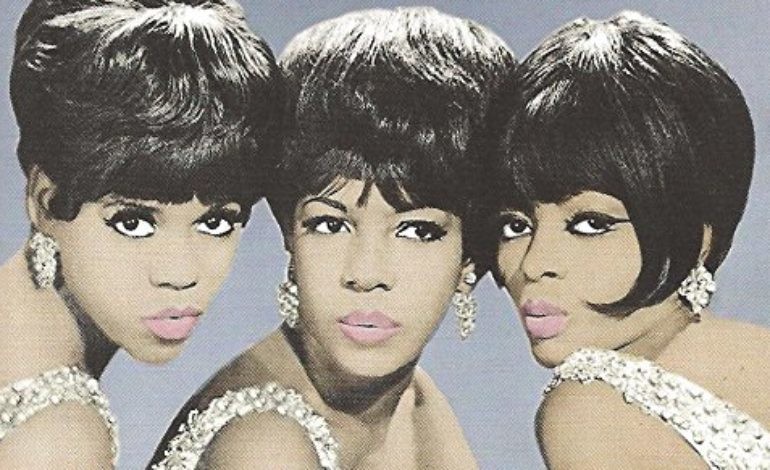
British music industry figures have paid tribute to Mary Wilson, the co-founder of superstar girl group The Supremes, who passed away this week at the age of 76. Wilson, who has been described as the “lynchpin” of the iconic and hugely influential pop act, will be remembered as a key figure in Tamla Motown’s 1960s Golden Age.
Mary Wilson along with Florence Ballard and Diana Ross changed the game permanently. Hit after hit after hit, on regular rotation to this day. A Supreme Titan may have left us but that legacy will never be surpassed. Rest in power #MaryWilson https://t.co/q54gUFLmcl pic.twitter.com/li8ndoy7yx
— Beverley Knight (@Beverleyknight) February 9, 2021
Posting on Twitter, Wolverhampton soul singer Beverley Knight said “Mary Wilson along with Florence Ballard and Diana Ross changed the game permanently. Hit after hit after hit, on regular rotation to this day. A Supreme Titan may have left us but that legacy will never be surpassed. Rest in power Mary Wilson.”
Marc Almond of Soft Cell – whose 1981 hit Tainted Love was released as a double A-side alongside a cover of the Supremes classic Where Did Our Love Go – also paid homage to Wilson on his Instagram account. The Yorkshire vocalist wrote: “Farewell Mary Wilson and thank you for the songs . You may have not worn the main crown but you were a Queen non the less. A Supreme Queen . Musical royalty.”
Elsewhere, legendary BBC DJ Tony Blackburn paid tribute to Wilson as “a very great singer and a very nice person”; while Lemar – who had interviewed The Supremes star for Magic.fm – called her a “lovely woman“, adding “RIP to another legend.”
Born in Greenville, Mississippi in 1944, Mary Wilson and her family later moved to Detroit, Michigan, where they worshipped at the same Baptist Church where Clarence Franklin (father of Aretha) was minister. Wilson’s first venture into the world of music came as part of group with Aretha Franklin’s sister, Carolyn, when she was still in junior school.
Aged 15, the fledgling singer would become the third member of The Primettes alongside schoolmate Florence Ballard and Betty McGlown. Wilson then recruited the group’s fourth member – Diana Ross. The quartet signed to Berry Gordy’s up-and-coming Motown Records in 1961, changing their names to The Supremes. The group was reduced from a four-piece to a trio over the next two years (with McGlown and her replacement Barbara Martin departing), and it was with this Ross-Wilson-Ballard trifecta that the soul-pop outfit would enjoy worldwide stardom. Their succession of classic mid-sixties hits are instantly evocative of the period and the Motown sound: Where Did Our Love Go; Baby Love (their first UK number #1); Come See About Me; Stop! In The Name of Love; I Hear A Symphony; Love Is Here And Now You’re Gone; The Happening; You Keep Me Hanging On; Reflections and the seismic You Can’t Hurry Love, which sold over 300,000 copies in Britain in 1966.
By this time Wilson and The Supremes had already done their bit for transatlantic pop relations with their third studio album, 1964’s A Bit Of Liverpool. This unabashed love letter to the so-called ‘British invasion’ (and its American influences) saw the girls cover a wide range of Beatles tracks (from I Want To Hold Your Hand and A Hard Day’s Night to Can’t Buy Me Love B-side You Can’t Do That), as well as hits by Gerry and The Pacemakers, The Dave Clark Five, Peter and Gordon, and The Animals.
The Supremes continued to enjoy commercial and critical success after Florence Ballard’s departure from the group, with new addition Cindy Birdsong featuring on further hits including I’m Gonna Make You Love Me, Love Child and Someday We’ll Be Together. Ross’ departure from the group in 1970 marked the start of a gradual decline in their commercial fortunes, but Mary Wilson – the only surviving member of the original line-up – stayed on board until the very end, and The Supremes’ farewell concert at London’s Drury Lane Theatre in 1977. Wilson would go on to release two solo albums, her eponymous LP Mary Wilson (1977) and Walk The Line (1992).
Scottish writer Stuart Cosgrove, author of the Motown social biography Detroit 67, called Wilson “remarkable“. In the book he speaks of both her personal magnetism and underrated vocal ability, referencing her ability to “imitate voices from jazz to soul to opera“. Wilson is survived by her daughter Turkessa and son Pedro Junior.
